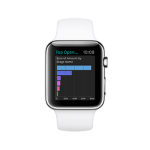How to Increase Productivity



A constant flow of coffee may be just the jolt necessary to meet a deadline, but that’s not the only elixir to increase productivity at work. Prioritizing, taking breaks, dodging distractions, and getting a handle on that constant flow of emails are just a few key ways to increase productivity. But
A constant flow of coffee may be just the jolt necessary to meet a deadline, but that’s not the only elixir to increase productivity at work. Prioritizing, taking breaks, dodging distractions, and getting a handle on that constant flow of emails are just a few key ways to increase productivity.
But staying productive isn’t just about the nine to five. While there are strategies to improve productivity during the daily grind, it’s important to set yourself up for success outside of the office as well. Studies suggest starting the day with low-pressure mornings (and a satisfying breakfast) and ending with a proper wind down and adequate sleep can improve efficiency, alertness, and ultimately productivity. While all of these tips may not be realistic for everyone, gradually adopt just a few of these productivity boosters to combat burn out and manage your time more efficiently.
All in a Day’s Work
Increase Productivity
In and Out of the Office
How to Get Up and At ‘Em
- Stay scheduled
- Try to set the alarm for the same time every morning
- Skip the snooze button. Snoozing can disturb REM cycle sleep
- Keep mornings pressure free
- Allow a little time for something you love, like reading or meditating
- Eat breakfast
- A pre-work meal can provide an energy and productivity boost
- Choose foods rich in vitamin B, which can improve concentration and clear thinking:
- Oatmeal
- Bananas
- Pineapple
- Avocados
- Squeeze in a workout
- Physical activity is associated with a reduced chance of low energy and fatigue
- Avoid email
- Don’t open your inbox until work starts
- One email can throw off your whole morning routine
- Prioritize
- Do the things you need to get done, but don’t want to, first
- The rest of the day’s tasks will follow
- Take breaks
- Short breaks can increase concentration, alertness, and work speed
- Even brief diversions from a task can significantly improve focus on a task for prolonged periods
- Work in intervals
- Research suggests working in 90 minute intervals maximizes productivity
- Be aware of distractions
- Personal business, emails, socializing, meetings
- 28% of the average office worker’s day is spent focused on unnecessary interruptions
- In a workplace productivity study:
- 63% of respondents reported loud colleagues as the biggest distraction
- Physically move away from distractions, put in earphones, or ask coworkers to not disturb you for a set period of time
- Pop in earphones
- For mundane and repetitive tasks, like checking email, research suggests music can increase productive output
- Set the temperature just right
- Research shows indoor temperature can significantly impact productivity
- The best temperature to work: Between 72 and 77 degrees Fahrenheit
- Don’t be so serious
- Make some time for humor and non-work-related Internet surfing
- Those who spent less than 20 percent of their time watching silly YouTube videos or reading other viral content were 9 percent more productive than those who didn’t take internet leisure time
- Sip some coffee
- Research shows both coffee and tea can increase alertness
- Coffee can also reduce mistakes and accidents
- One study found drinking coffee boosted productivity and motivation by 19 percent
- Dodge multitasking
- Doing several things at once can negatively affect clarity and make us less efficient
- Only 2 percent of people can multitask effectively
- One study found multitasking reduced productivity by up to 40 percent
- Evade email dependency
- A survey of employed email users found:
- 22% are expected to respond to work email when they’re not at work
- 50% check work email on the weekends
- 46% check work email on sick days
- 34% check work email while on vacation
- It takes an average of 64 seconds to recover each time we’re interrupted by an email
- Turn off distracting email alerts
- Block set times to check and respond to email rather than reply immediately to each
- A survey of employed email users found:
- Change up your work environment
- Research shows employees who work from home are happier, less likely to quit, and more productive
- To stay productive at home:
- Set up a dedicated work area with set hours
- Eliminate or reduce distractions like the TV or pets
- Set ground rules with friends and family members
How to Stay Focused At the Office
How to Wind Down After Work
- Debrief
- On the commute home (or walk away from the home office), debrief then put work thoughts aside
- Write down any thoughts, or to dos and file them away for tomorrow
- Prepare for tomorrow, today
- Program the coffeemaker, make lunch, lay out an outfit, do whatever you can to make tomorrow morning haggle free
- Allow for relaxation
- Let yourself wind down before bed, at least 1 hour before
- Listen to calming music, read, do a Sudoku puzzle
- Get enough sleep
- Workers who report high workloads, stressful workweeks, or who score higher on burnout indexes report shorter sleep timesSleep deprivation costs American companies an estimated $63.2 billion every year in lost productivityThere’s no magic number of hours for optimal productivity, but studies suggest 7-9 hoursTips to bring on better sleep:
- Go to bed and wake up at the same times every day
- Keep the bedroom dark, quiet, comfy, and cool
- Keep all electronics out of the bedroom
- Finish eating at least 2-3 hours before bedtime
- Exercise regularly
Conclusion:
With hectic schedules and crazy workloads, a productive day may seem like a distant dream. When we allow time for breaks, relaxation, and routine work output may actually increase.























